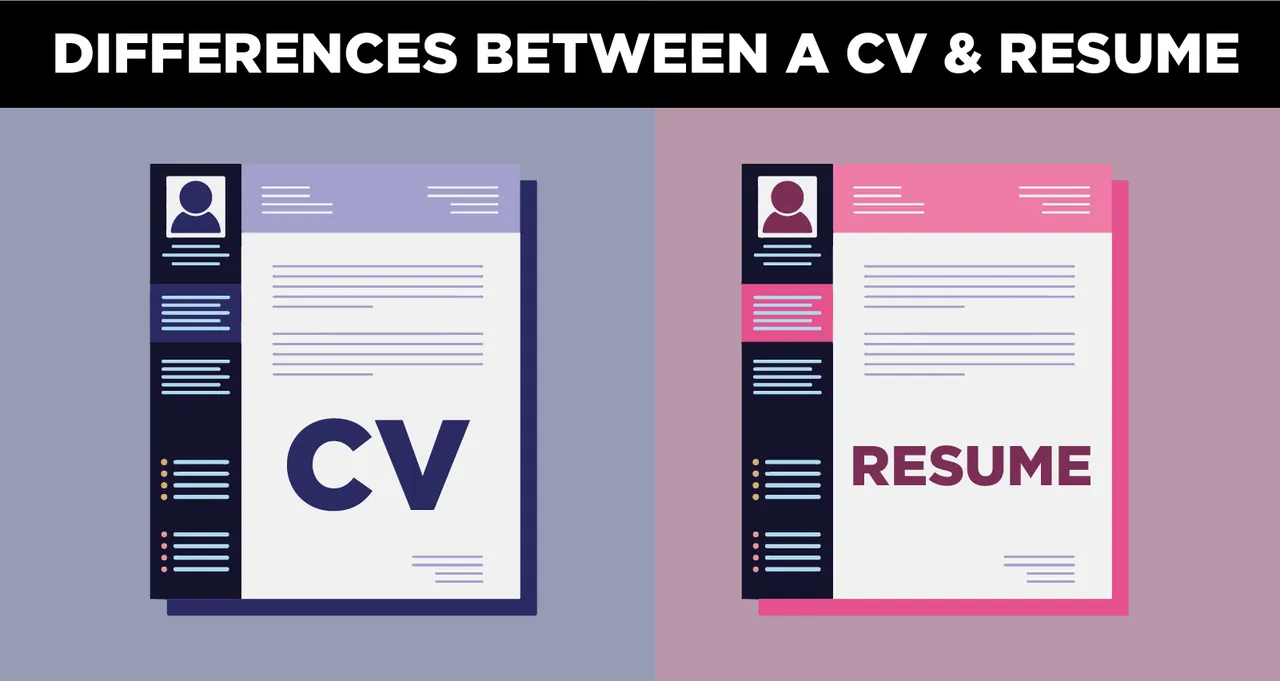CVs versus Resumes: What’s the Difference?

One point of confusion for job seekers can be the difference between a CV and a resume when applying for new opportunities. The terms can seem to be used interchangeably; however, there are some subtle differences between the two.
Both documents are fundamental in showcasing your skills, experiences, and achievements. However, understanding the subtle nuances between a CV and a resume is crucial for making a lasting impression on potential employers. Here, we aim to demystify these differences and help healthcare professionals choose and craft the right document to advance their careers.
What is a CV?
A curriculum vitae (CV) is an in-depth document that details the entire course of your career. In the medical industry, a CV can be preferred due to its comprehensive nature, especially in roles where you are likely to be involved in any kind of research or academic capacity. A CV includes a detailed list of your academic background, teaching and research experience, publications, presentations, awards, honors, affiliations, and other professional activities. A CV is typically used when applying for academic, educational, scientific, or research positions.
What is a Resume?
A resume can be similar to a CV but is a more concise summary of your skills, experiences, and education. Unlike a CV, resumes are typically limited to one or two pages. It's tailored to the specific job you're applying for, highlighting relevant experiences and achievements. In healthcare, a resume is often used for non-academic positions where specific skills and experiences are more critical than an extensive academic background.
Key Differences Between a CV and a Resume
While both CVs and resumes serve as personal marketing tools and are used for job applications, they differ significantly in structure, content, and purpose. A CV is a lengthy, detailed synopsis of your professional and academic career, often extending over several pages. It remains static, only requiring updates as your career progresses. In contrast, a resume is a brief, targeted list of your skills and experiences tailored to the job you're applying for.
Here are some key differences between the two documents:
- Length - A CV can be several pages, while a resume is typically one to two pages. Resumes should generally be as concise as possible, while a CV is generally better the longer it is.
- Purpose - A CV is comprehensive and used to display academic and research expertise, whereas a resume is succinct and job-specific. Resumes are intended to be a summary of your professional career, while CVs are designed to provide a comprehensive overview of all your professional achievements.
- Content - A CV includes all academic and professional achievements you are able to include, a list of all your publications, patents, and other similar accomplishments, and your professional experiences. A resume focuses on your professional highlights, relevant skills, and experiences.
- Customization - A CV remains largely static, slowly growing in length. A resume, on the other hand, should be customizable for different job applications.
When to Use a CV versus a Resume
Understanding when to use a CV or a resume can significantly impact your job application. In the healthcare sector, a CV is generally preferred for roles that are research, education, or grant funding oriented, such as a physician or academic researcher. These positions value detailed professional accomplishments like publications and research experience.
A resume is more suitable for clinical roles, such as nurses, therapists, administrative staff, or non-research-related physician roles where specific skills and job experiences are more pertinent than academic history. Resumes should be succinct and lead to an interview, while a CV should provide more in-depth information.
If you are unsure of whether to provide a resume or a CV during an application, the job description and application will typically provide clear instructions on which is preferred. As a general rule, a position in the United States that is not academic or research-oriented will typically require a resume. In some European countries, a CV may be standard for most positions, even those that would typically only require a resume in the US.
Tips for Crafting an Effective CV/Resume
Whether you're preparing a CV or a resume, the goal is to present yourself as the ideal candidate for the job. Here are some tips to help you create an effective document:
- Tailor your content - Customize your resume for each job application; for a CV, emphasize the most relevant accomplishments.
- Focus on achievements - Use metrics and specific examples to showcase your successes. Details that are as specific and empirical as possible are preferred in both resumes and CVs.
- Keep it professional - Use a clean format and professional language. For resumes, try to keep it to one page, if possible, or two at the most. For CVs, being as comprehensive as possible is more important than achieving a specific length.
- Proofread - Ensure there are no errors or typos. Consider having multiple people proofread it for you, as grammatical mistakes can be very off-putting when applying for professional positions.
In the healthcare industry, where the competition for jobs can be intense, understanding the difference between a CV and a resume is crucial. By choosing the appropriate document and tailoring it to showcase your strengths and achievements, you can significantly enhance your chances of landing your desired position. Remember, an effective CV or resume is not just a list of your past experiences; it's a strategic tool to propel your career forward.
**Editor's Note: For more helpful tips on crafting your CV or resume, view our other healthcare career resources**
Related Posts
